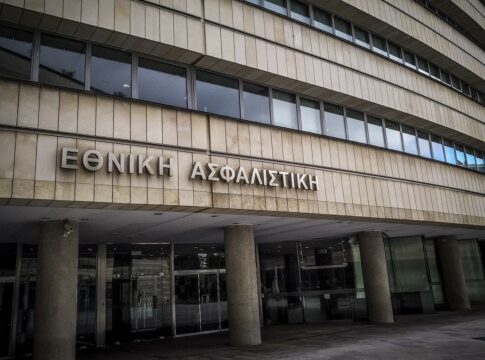By Dimitris Christelis
Research Fellow, University of Naples Federico II
During the crisis Greek governments, under pressure from the Troika, dramatically increased taxes on real estate ownership. Receipts from these taxes increased from €1 billion in 2007 to €3.47 billion in 2014 (the last year with full data availability). The Unified Tax on Real Estate Ownership (ΕΝΦΙΑ) brings in €2.65 billion per year (we do not know yet how its recent changes will affect these receipts).
However, this amount represents just the gross receipts from ΕΝΦΙΑ. To find its net receipts one has to subtract from the €2.65 billion the tax losses that it induces by lowering: a) disposable income; b) wealth-related consumption (due to lower real estate values); c) investment in dwellings (due to their increased riskiness and price drop). These three effects result, using conservative assumptions for the extreme economic slump, in a GDP drop of €6-9 billion per year, leading to 70,000-100,000 fewer jobs and to tax losses of €2.2-3.3 billion.
In addition, the government loses revenue due to the freeze of the real estate market, to which the increased property taxation significantly contributes. Real estate transaction taxes have fallen by €1.4 billion from 2007 to 2013. Households cannot sell their real estate, thus having no access to their savings (more than 80% of household saving is invested in real estate), and cannot use them for consumption or pay taxes and debts. Moreover, the continuous drop in real estate prices provides a disincentive for loan repayment, as by now the outstanding loan amount is often much larger than the value of the real estate for which the loan was given. The resulting higher non-performing loans lead to increased government spending to recapitalise the banks. Furthermore, the market freeze decreases lending to the private sector, as real estate is the primary form of collateral. This credit squeeze further decreases GDP and tax receipts. Finally, the continuous real estate price drop leads to reduced revenues from the sale of public properties.
Hence, the humongous increase in real estate taxation brings in at best negligible and most likely negative net tax receipts. It has also severe negative consequences for households’ finances and the sustainability of Greek public debt, as it significantly reduces GDP without reducing the deficit.
Behind the excessive increase in real estate taxation is the belief that higher tax rates increase net tax receipts. This is not correct, especially during a deep recession and with respect to real estate, which has a specific set of properties: it a) provides shelter; b) is a production factor in a modern economy; c) is the principal vehicle of household saving; d) is a large investment vehicle in every economy; e) is the primary bank loan collateral. Real estate taxation negatively affects all functions, hurting the economy in numerous ways.
Beyond real estate owners, the crisis also hurts the economically weak, who are more likely to lose jobs and have most savings in real estate, as they have few liquid assets. They suffer disproportionately both from the large GDP drop that the increased real estate taxation induces and the associated market freeze. Hence, this taxation is probably not progressive.
This implies that in the current setting real estate ownership taxation must be eliminated. It has disastrous consequences for the economy and brings in effectively zero, if not negative, net tax receipts. It does not need to be replaced by any other tax. If this taxation remains, Greece will not recover from the crisis, as no economy can function normally with continuously depreciating private assets, with large parts of household saving disabled, a negligible investment in dwellings, and with severely impaired bank credit. Going for the low hanging fruit is sometimes counterproductive.
*This article is part of a feature regarding the Greek crisis, within the context of a cooperation between “Naftemporiki” and “DIW Berlin”. It is based on the research “The Greek crisis: A Greek tragedy?” and expresses the personal opinion of the author.















